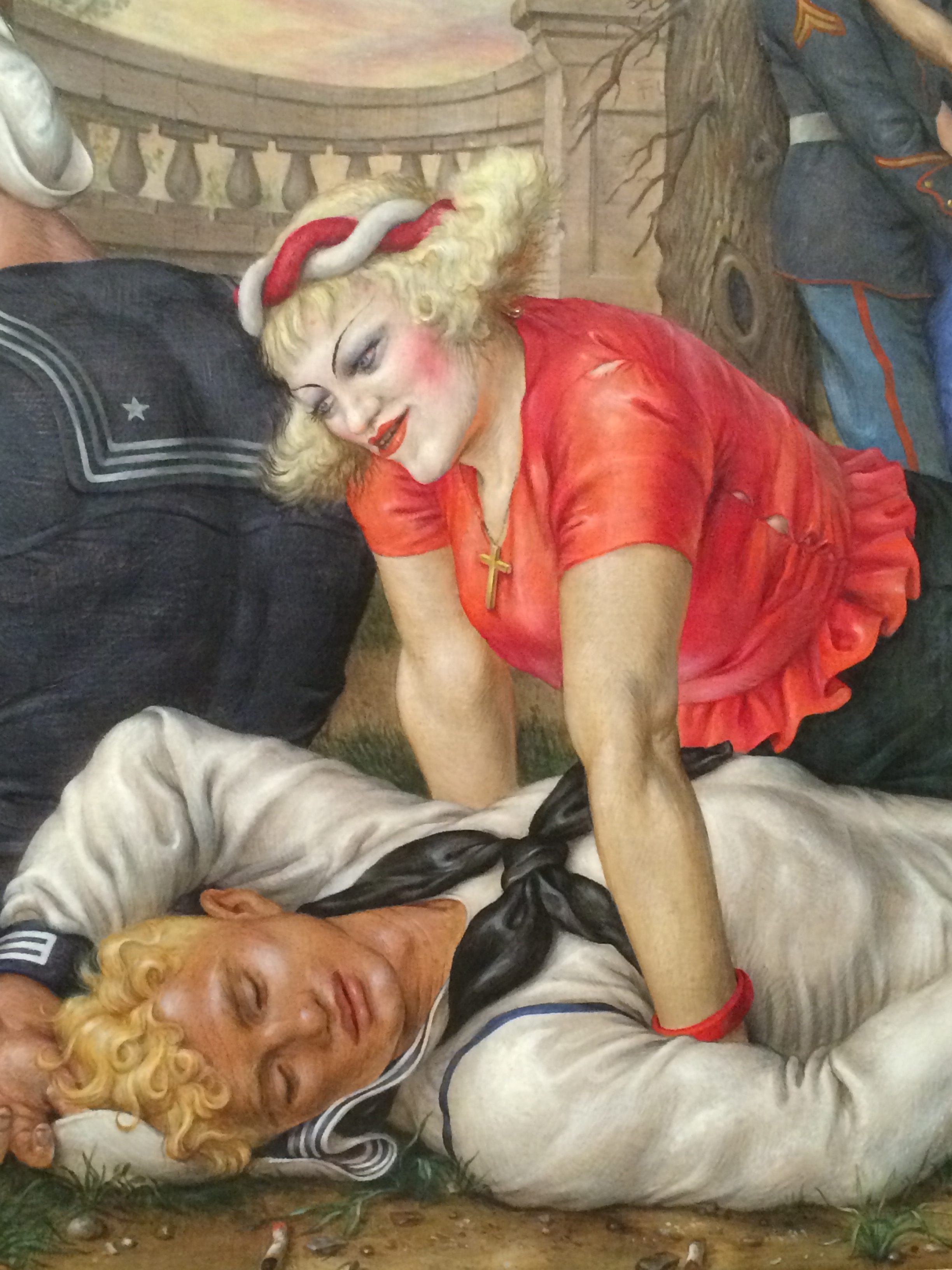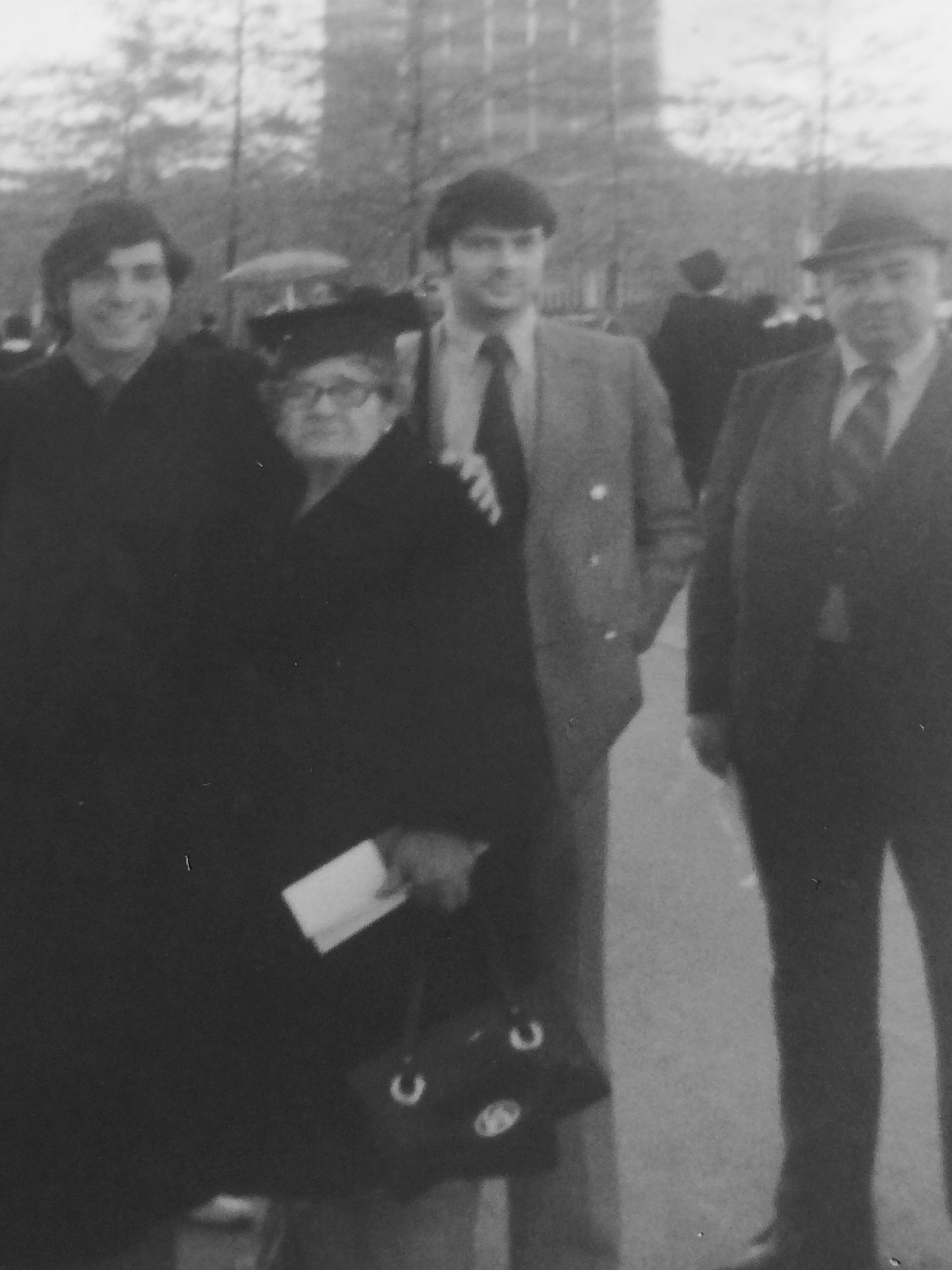
Vincent “The Chin” Gigante being arrested by Federal Agents (NY Daily News Photo)
For weeks, some have been asking how long the lunatic, erratic, fanatical and dangerous behavior of Donald Trump can go on. For answers, we overlooked the most obvious source of all of Trump’s life lessons: Mobsters.
New York Mob boss Vincent “The Chin” Gigante, the power behind the Genovese Crime Family during the 1980’s and 1990’s, avoided prosecution for decades by pretending to be crazy. Nicknamed “The Oddfather,” Gigante took rambling street strolls in pajamas, a terrycloth robe and slippers around Greenwich Village, where he lived in a small apartment with his mother, who, in a screeching Sean Spicer-like defense of her son, insisted the only thing he was “boss” of was the bathroom. Paul Manafort? A “limited role.” Michael Flynn? A Volunteer. Roger Stone? A bathroom attendant.
The Chin’s “elaborate deception”—as Federal Judge Eugene Nickerson described Gigante’s behavior in declaring him mentally competent to stand trial in the 1990’s–kept him out of jail for years, and the wealthy & powerful Mob boss manufactured reams of doctors notes to swear to his lunacy. Some of those notes from The Chin’s parade of psychiatrists bore an eerie, albeit, perverse similarity to the claims made by Trump’s own alleged “doctor.” The Chin was the craziest of all crazies, according to his Docs, just as Donnie “Double Chin”—the nearly 300 pound Tweeter from the High Tower—was, physically, if not mentally, the healthiest presidential candidate in world history.
Somehow, “The Chin’s” psychiatrists missed a few salient facts: Gigante’s slipping out at night, dressed in normal clothing, to be with his girlfriend on the Upper East Side; Gigante ordering a hit on John Gotti, head of the rival Gambino Crime Family because he felt Gotti broke the Mob’s rules with the “unsanctioned” murder of Paul Castellano; Gigante ordering his underlings never to mention his name in conversations, but simply point to their “Chins;” and Gigante gingerly extorting payoffs from vendors and pocketing money donated to a neighborhood church during New York’s Annual Feast of San Gennaro. Why bother with the facts when a fake narrative keeps the cash flowing?
Like “The Chin,” Donnie “Double Chin,” profits from advancing his fairy tale: he never settles lawsuits except for the dozens he has; he is “very, very rich”, except for when his debts & liabilities exceed his assets and he pays no income taxes for 20 years; he creates an imaginary universe where Barack Obama is a Muslim, not born in the USA, who wiretapped his phones, with help from British spies; The Central Park Five, along with Ted Cruz’ father, are guilty of murder, even when none of them are; millions of illegal voters gave the popular vote to Hillary; and Trump never dealt with the Russians, except when he did, and as his son admitted, the “family” was doing, in 2008. Also like “The Chin,”Donnie “Double Chin,” knows that his billowing bouffant layer-cake of lies can be easily deflated by those who have watched how it’s half-baked. That explains why he’s tweeting as fast as his tiny fingers can fly to delete Paul Manafort, Michael Flynn and Roger Stone from his friends list. They know too much.
It’s also why Trump—steeped in the raw sewage of Roy Cohn, Mob sycophant—demands ironclad non-disclosure documents from his underlings. He watched how testimony from former Mob members exposed “The Chin’s” long-running charade—like a bathrobe coming undone– putting the powerful crime boss away in prison for the rest of his life.
Selwyn Raab, the incomparable New York Times organized crime writer, detailed such testimony in his obituary on Gigante, published on December 19, 2005 (“Vincent Gigante, Mafia Leader Who Feigned Insanity, Dies at 77”):
“Salvatore Gravano, testified that even Mr. Gigante’s archrival, John Gotti, grudgingly acknowledged Mr. Gigante’s craftiness. ‘He’s crazy like a fox,’ Mr. Gravano quoted Mr. Gotti as saying after a summit meeting of NYC Mob leaders in 1988.”
Raab’s masterpice of a New York Times obituary on “The Chin,” is instructive for helping us understand the apparently unhinged behavior of Donnie “Double Chin:”
“ Mr. Gigante, whose nickname was ‘The Chin’, painstakingly maintained the fiction that he was incompetent until April 2003, when he appeared before Judge I. Leo Glasser in Federal District Court in Brooklyn and pleaded guilty to obstruction of justice. Specifically, he acknowledged running a con on the legal system that delayed his racketeering trial from 1990 to 1997, while his sanity was being examined.”
How long can Donnie “Double Chin” continue to “maintain his fictions “to avoid accountability or prosecution? When will his “elaborate deception” of the US and the world come crashing down? Will some no-nonsense, law and order judge like Justice I. Leo Glasser force Trump to “acknowledge running a con on the legal system,” in exchange for his resignation from office without jail time? When will Trump’s fellow gang members turn on him?
Donnie “Double Chin” may have gone to Wharton for a whiff of time, but he has proven himself incapable of learning the most important lessons “The Chin” taught: fancy pants or silk pajamas attract too much attention, and, the only thing “golden” from yourself and your friends, no matter how it’s achieved, is silenzio.



